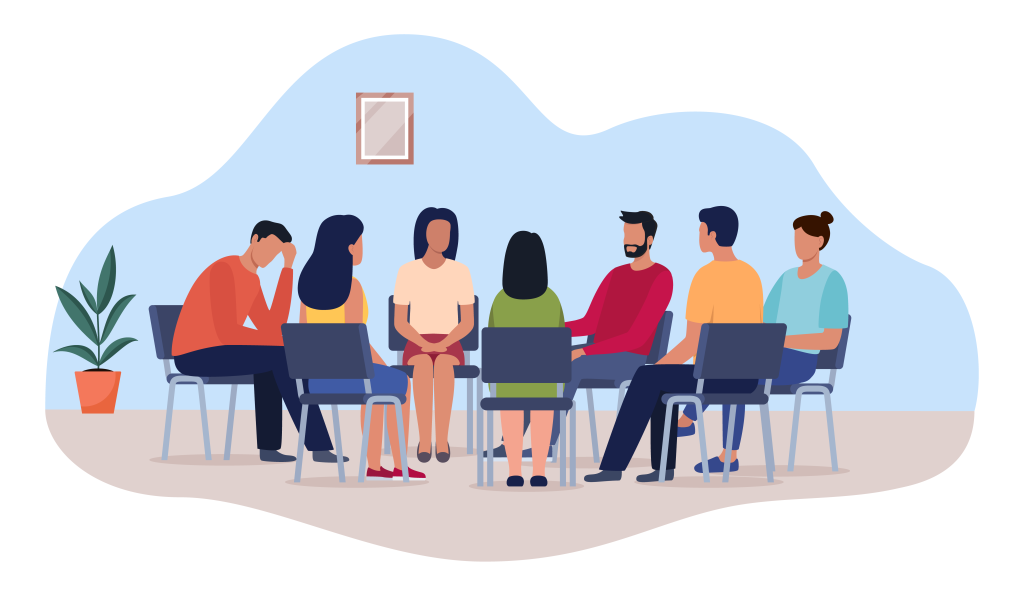Group Counseling: Intentionally Built & Effectively Facilitated
Not surprisingly, data from several studies found that group counseling is offered by over 90% of substance use disorders (SUD) treatment providers (Weiss, et al., 2004 and Crits-Christoph, et al., 2013). For many SUD treatment providers, group counseling services are considered the mainstay of all clinical services. Therefore, it is essential that everyone leading groups possess effective group facilitation skills. Facilitators skilled in group counseling methods are better prepared to assist group members in practicing communications skills, role playing difficult situations, learning how to give and receive feedback, identifying and naming feelings, and providing support, which all correlate to positive client outcomes.
The goal of this Enhanced Professional Learning series (EPL) on Group Counseling: Intentionally Built & Effectively Facilitated is to help group leaders build skills, increase knowledge regarding evidence-based practices in group counseling, avoid unhelpful or non-therapeutic group activities, and elevate their confidence in order to provide quality group counseling services through feedback and practice. Participants will have learning opportunities as part of the EPL to share group counseling experiences and practice group facilitation skills.
This EPL will focus on how to envision and build groups and developing/refining group skills that are facilitation-based (not SUD content-based), including knowledge and skills related to:
- Building group cohesion
- Managing conflict
- Redirecting clients who monopolize group discussion or stray off topic
- Managing unhelpful advice given from one member to another
- Eliciting client participation rather than lecturing
- Handling content and process issues
- Awareness of group work versus individual casework within a group
- Use of reflection to refine and enhance facilitation skills.
(cited by Wendt and Gone 2017; American Psychotherapy Association, 2007; CSAT, 2005; Sobell & Sobell, 2011; and Yalom & Leszcz, 2005)
WHEN:
Every Tuesday, March 11 – May 6, 2025 from 3 – 4:30 pm MT / 4 – 5:30 pm CT
TARGET AUDIENCE:
- Behavioral Health and Substance Use Disorder providers in HHS Region 8 (Colorado, Montana, North Dakota, South Dakota, Utah, Wyoming)
PARTICIPANT COMMITMENT & EXPECTATIONS
- Access to appropriate technology to utilize Zoom videoconferencing platform (internet connection, webcam, laptop/tablet, speakers and microphone)
- Attend a one-hour online Orientation on Tuesday, March 11, 2025 at 3:00 pm MT / 4:00 pm CT
- Commit to 8 weeks of online training for 1.5 hours weekly from March 17 – May 6, 2025
- Complete weekly self-study learning activities
TRAINER(S)/FACILITATOR(S):
- Kate Speck, PhD, MAC, LADC
- Paul Warren, LMSW
- Amy Shanahan, MS, CADC
THERE IS NO COST TO PARTICIPATE:
The first 40 registrants will receive a Mountain Plains ATTC waiver that covers the entire $550 cost of participation. Once the 40 spots have been filled, registration will be closed. Due to limited enrollment, if you cannot commit to the full requirements, please defer this opportunity to others. Registration is not transferable to another person.
Please Note:
Registrants enrolled in this series are required to attend the first two sessions. If you cannot attend these sessions, you will forfeit your space in the series.
In addition, it is expected that participants will have access to the appropriate technology by March 17th in order to fully participate and be on camera at least 90% of the time. This is not a webinar series and active participation to gain/improve skills are required.
If you do not receive a welcome email March 10th, please check your spam folder.
Continuing Education The series has been approved for a total of 21 contact hours (20 hours content instruction and one-hour orientation session) through the National Association for Addiction Professionals (NAADAC), International Certification & Reciprocity Consortium (IC&RC), and has been approved by CASAT, School of Public Health, University of Nevada, Reno, as a NAADAC Approved Education Provider, for [#] CEUs. NAADAC Provider #98165. CASAT is responsible for all aspects of its programming. No credit will be awarded for non-attendance or partial attendance.
The knowledge and skills learned should be applied within the framework of any applicable Operating and/or Credentialing regulations in your State of practice.
QUESTIONS: please contact the MPATTC Workwise Staff at mpattc@casat.org


